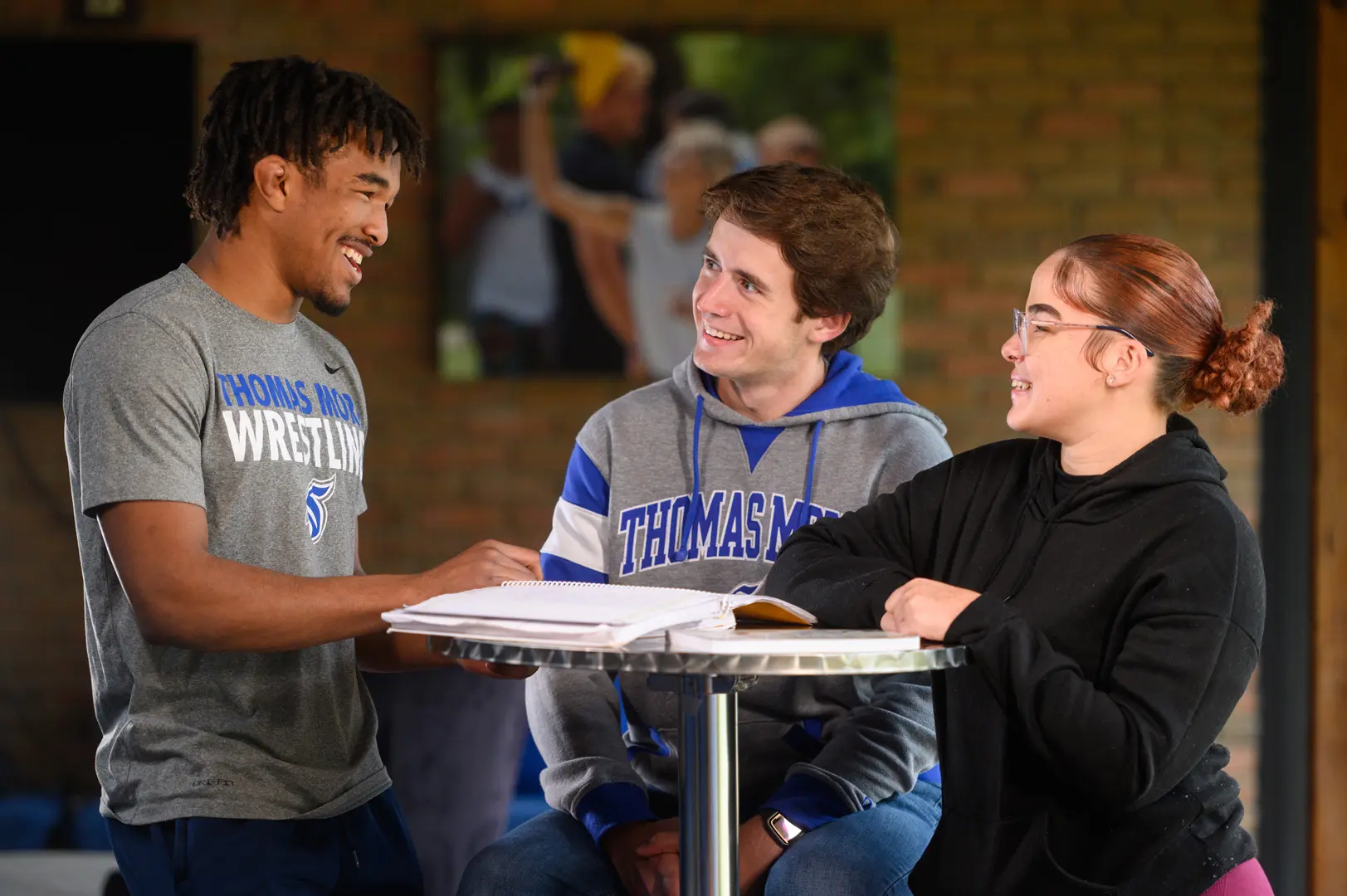
Second Century
Core Curriculum
Guided by the Catholic Intellectual Tradition and inspired by Catholic Social Teachings, students from Thomas More will be able to:
• Critically analyze and interpret texts, creative works, and numerical data in the search
for truth and the meaning of life
• Communicate effectively through speech, writing, digital or other expressive forms in
the search for truth
• Evaluate diverse perspectives on local, national, and global issues in the quest to define
one’s place in the world and responsibility to others

The new core streamlines paths to graduation while offering students greater flexibility and additional opportunities to explore different areas of interest.
The University is modernizing the approach to a liberal arts education,
connecting learning to our mission and providing students access to
content that will help them meet the new and ever evolving needs of the
21st century.
The sequences offered through the Second Century Core Curriculum
are intended to supplement degree and career goals. The University is
committed to both the breadth and depth of a liberal arts education. With
an inner core focused on breadth and an outer core sequence focused on
depth, the 2nd century core provides students with a common intellectual
experience and choice – both necessary for a successful education.
Adopted Framework
Inner Core:
Breadth and exploration | Representative of current subjects | 38 hours
Literature: 3 credit hours
Math: 3 credit hours
Social Sciences: 3 credit hours
Communications: 3 credit hours
History: 3 credit hours
Science and Lab: 4 credit hours
Theology: 6 credit hours
Philosophy: 4 credit hours
Fine Arts: 3 credit hours
Composition: 3 credit hours
Language: 3 credit hours
Outer Core:
Depth and integration | 9+ hour sequence
- Second major
- Minor
- Focus on interdisciplinary
understanding and mission
integration
Core, Major, More:
120 hours minimum for graduation. Average major is 60 hrs, core is 47